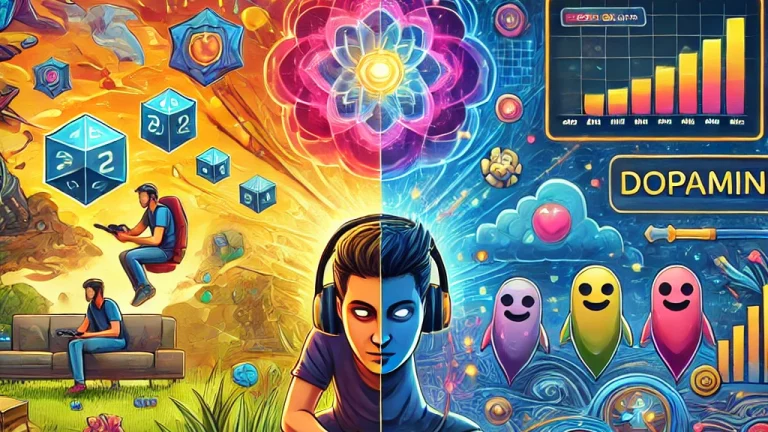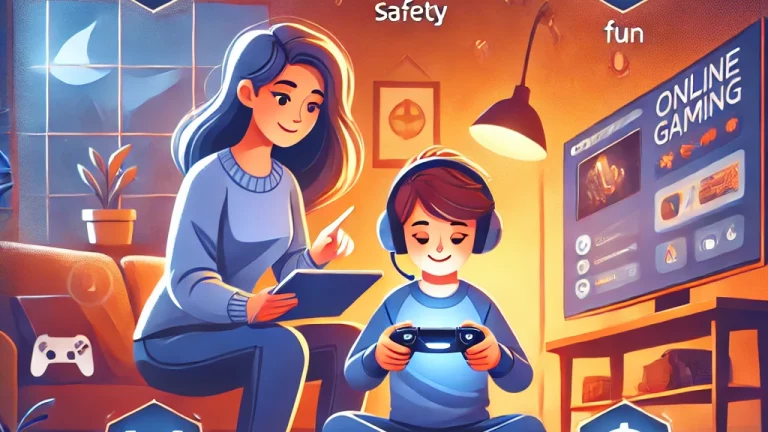
The Art of Game Design: What Makes Online Games Addictive?
Introduction: The Appeal of Online Games
Online games have become a global phenomenon, captivating millions of players across all age groups. From casual mobile games to immersive multiplayer experiences, the allure of online gaming is undeniable. But what exactly makes these games so addictive? Is it the engaging storylines, the competitive elements, or the meticulously designed mechanics that keep players coming back for more?
This article explores the art of game design and the psychological principles that developers use to create games that are not only enjoyable but also highly addictive.
The Psychology Behind Game Addiction
The success of online games often lies in their ability to tap into basic human psychology. By understanding what motivates players, developers can design experiences that are hard to resist. Here are some key psychological factors:
- The Reward System:
- Online games often use a system of rewards, such as points, achievements, or virtual items, to keep players engaged. These rewards trigger the brain’s release of dopamine, creating a sense of pleasure and reinforcing the behavior.
- The “Endless Loop”:
- Many games are designed with repetitive loops of action, reward, and progression. This cycle keeps players hooked, as they constantly chase the next achievement or level-up.
- Social Interaction:
- Multiplayer games leverage social dynamics, encouraging players to form alliances, compete, or cooperate with others. The sense of community and social validation adds another layer of engagement.
- Fear of Missing Out (FOMO):
- Limited-time events, daily rewards, and exclusive items create a sense of urgency, compelling players to log in regularly to avoid missing out.
Game Mechanics That Drive Engagement
Behind every addictive online game lies a set of carefully crafted mechanics that enhance player retention. These mechanics are not accidental but the result of deliberate design choices. Here are some of the most effective ones:
- Progression Systems:
- Games often feature progression systems, such as experience points (XP), skill trees, or rankings, to give players a sense of accomplishment. The promise of growth and improvement motivates players to keep playing.
- Random Rewards:
- Loot boxes, treasure chests, and randomized drops tap into the thrill of unpredictability. Players are drawn to the excitement of discovering rare or valuable items, even if the odds are low.
- Challenges and Goals:
- Clear objectives, such as quests or missions, provide players with a sense of purpose. The satisfaction of completing these tasks drives continued engagement.
- Immersive Storytelling:
- Games with rich narratives and compelling characters create emotional investment. Players are more likely to return to a game if they are invested in its story.
- Customization:
- Allowing players to personalize their characters, avatars, or in-game environments fosters a sense of ownership and attachment.
The Role of Aesthetics and Sound Design
Beyond mechanics, the visual and auditory elements of a game play a significant role in its addictive nature:
- Visual Appeal:
- Bright colors, smooth animations, and aesthetically pleasing designs make games visually engaging. Developers often use color psychology to evoke specific emotions.
- Sound Effects and Music:
- Catchy soundtracks and satisfying sound effects enhance the gaming experience. For example, the “level-up” sound can create a sense of achievement.
- User-Friendly Interfaces:
- Intuitive controls and well-designed interfaces ensure that players can easily navigate the game, reducing frustration and enhancing enjoyment.
The Ethical Debate: Addiction vs. Entertainment
While the goal of game design is to create engaging experiences, the addictive nature of online games raises ethical questions. Developers walk a fine line between providing entertainment and exploiting psychological vulnerabilities. Some key concerns include:
- Time Management:
- Excessive gaming can lead to neglect of responsibilities, relationships, and physical health.
- Monetization Strategies:
- Pay-to-win models, microtransactions, and loot boxes have been criticized for encouraging compulsive spending, particularly among younger players.
- Mental Health Impacts:
- Prolonged gaming sessions can contribute to issues such as anxiety, depression, and gaming addiction.
How Developers Balance Engagement and Responsibility
Many game developers are now taking steps to create healthier gaming environments. These include:
- Parental Controls:
- Features that allow parents to set time limits or restrict in-game purchases.
- Session Reminders:
- Notifications encouraging players to take breaks during extended play sessions.
- Transparent Odds:
- Clear disclosure of loot box probabilities to help players make informed decisions.
- Focus on Skill-Based Progression:
- Designing games that reward skill and effort rather than monetary investment encourages fair play.
Tips for Gamers: Enjoying Games Responsibly
Players can take proactive steps to enjoy games without falling into unhealthy habits. Here are some tips:
- Set Limits:
- Allocate specific times for gaming and stick to them.
- Be Mindful of Spending:
- Track in-game purchases and avoid impulsive spending.
- Prioritize Balance:
- Ensure that gaming does not interfere with work, studies, or relationships.
- Choose Games Wisely:
- Opt for games with positive reviews and ethical monetization practices.
Conclusion: The Art and Science of Game Design
The addictive nature of online games is a testament to the skill and creativity of game designers. By combining psychology, mechanics, and aesthetics, they create experiences that resonate with players on multiple levels. However, it is crucial for both developers and players to approach gaming responsibly.
When designed and played with balance, online games can offer immense joy, learning, and social connection. Understanding what makes games addictive empowers players to enjoy them as a source of entertainment rather than a potential pitfall.

